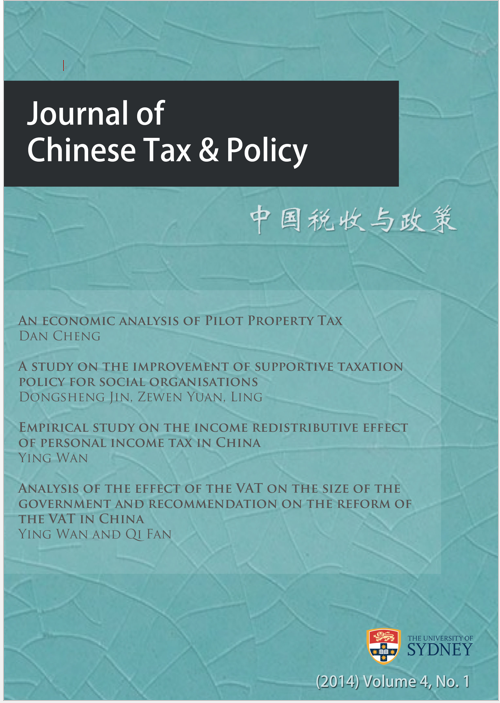Characteristics of the Chinese tax system and its cultural reasons: in comparison with the West
Abstract
China’s tax system is characterised by the co-existence of formal taxes, sundry levies and hidden taxes. In China, multiple authorities with tax law making powers and tax administration powers exist. This leads to issues of tax jurisdiction and tax compliance such as differential treatment between local administrative areas and between taxpayers who have different status in the tax system. These unique characteristics of the Chinese tax system are rooted in China’s special national circumstances. These national circumstances include issues of economic development, political system and issues that are culturally specific. Further, a ‘human relationship system’ arises from that culture, where the behaviour of politicians, grassroots administrators and the taxpayers cannot be viewed in isolation. Looking deeper, the reasons behind these characteristics relate to the status- conscious culture in China. This is exemplified in the saying “Criminal punishment does not apply to senior officials and the etiquette does not apply to common people”[1], and the selfish culture of human sympathy[2], face relationships, and “if it is not my business, hang it up”[3].This article discusses the main characteristics of the Chinese tax system, comparing it to prevailing systems in Western developed nations. It focuses on cultural attributes, providing a backdrop for understanding the full picture of the Chinese tax system.[1] Translation of “礼不下庶人,刑不上大夫” from Liji. Liji is an ancient Confucian Classic on the law and system of government written during the War Lords period.
[2] Human Sympathy operates parallel to the law in China’s administrative system and governance structure.
[3] Translation of “事不关己,高高挂起”.

